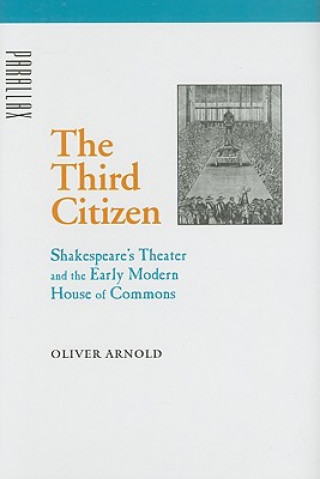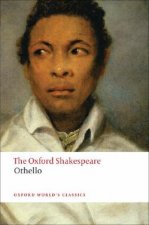
Kód: 04709782
Third Citizen
Autor Oliver Arnold
The new practices and theories of parliamentary representation that emerged during Elizabeth's and James' reigns shattered the unity of human agency, redefined the nature of power, transformed the image of the body politic, and un ... celý popis
- Jazyk:
 Angličtina
Angličtina - Vazba: Pevná
- Počet stran: 328
Nakladatelství: Johns Hopkins University Press, 2007
- Více informací o knize

1840 Kč
Dostupnost:
50 % šance Máme informaci, že by titul mohl být dostupný. Na základě vaší objednávky se ho pokusíme do 6 týdnů zajistit.
Máme informaci, že by titul mohl být dostupný. Na základě vaší objednávky se ho pokusíme do 6 týdnů zajistit.Prohledáme celý svět
Mohlo by se vám také líbit
Dárkový poukaz: Radost zaručena
- Darujte poukaz v libovolné hodnotě a my se postaráme o zbytek.
- Poukaz se vztahuje na celou naši nabídku.
- Elektronický poukaz vytisknete z e-mailu a můžete ihned darovat.
- Platnost poukazu je 12 měsíců od data vystavení.
Informovat o naskladnění knihy
Zadejte do formuláře e-mailovou adresu a jakmile knihu naskladníme, zašleme vám o tom zprávu. Pohlídáme vše za vás.
Více informací o knize Third Citizen
Nákupem získáte 184 bodů
 Anotace knihy
Anotace knihy
The new practices and theories of parliamentary representation that emerged during Elizabeth's and James' reigns shattered the unity of human agency, redefined the nature of power, transformed the image of the body politic, and unsettled constructs and concepts as fundamental as the relation between presence and absence. In The Third Citizen, Oliver Arnold argues that recovering the formation of political representation as an effective ideology should radically change our understanding of early modern political culture, Shakespeare's political art, and the way Anglo-American critics, for whom representative democracy is second nature, construe both. In magisterial readings of Titus Andronicus, Julius Caesar, Coriolanus, and the First Tetralogy, Arnold discovers a new Shakespeare who was neither a conservative apologist for monarchy nor a prescient, liberal champion of the House of Commons but instead a radical thinker and artist who demystified the ideology of political representation in the moment of its first flowering. Shakespeare believed that political representation produced (and required for its reproduction) a new kind of subject and a new kind of subjectivity, and he fashioned a new kind of tragedy to represent the loss of power, the fall from dignity, the false consciousness, and the grief peculiar to the experiences of representing and of being represented. Representationalism and its subject mark the beginning of political modernity; Shakespeare's tragedies greet political representationalism with skepticism, bleakness, and despair.
 Parametry knihy
Parametry knihy
Zařazení knihy Knihy v angličtině Literature & literary studies Literature: history & criticism Literary studies: plays & playwrights
1840 Kč
- Plný název: Third Citizen
- Podnázev: Shakespeare's Theater and the Early Modern House of Commons
- Autor: Oliver Arnold
- Jazyk:
 Angličtina
Angličtina - Vazba: Pevná
- Počet stran: 328
- EAN: 9780801885044
- ISBN: 0801885043
- ID: 04709782
- Nakladatelství: Johns Hopkins University Press
- Hmotnost: 590 g
- Rozměry: 229 × 152 × 24 mm
- Datum vydání: 12. March 2007
Oblíbené z jiného soudku
-

Streetcar Named Desire
291 Kč -

Titus Andronicus
223 Kč -

Cat on a Hot Tin Roof
251 Kč -

Faust
604 Kč -

Botanical Shakespeare
544 Kč -

All My Sons
249 Kč -

Midsummer Night's Dream: The Oxford Shakespeare
223 Kč -

Complete Sonnets and Poems: The Oxford Shakespeare
268 Kč -

Shakespeare
302 Kč -

Glass Menagerie
268 Kč -

Sonnets and a Lover's Complaint
487 Kč -

Richard III (No Fear Shakespeare)
164 Kč -

Shakespeare
543 Kč -

Twelfth Night, or What You Will: The Oxford Shakespeare
223 Kč -

Othello: The Oxford Shakespeare
223 Kč -

Romeo and Juliet: The Oxford Shakespeare
247 Kč -

Hamlet (No Fear Shakespeare)
185 Kč -

Tempest (No Fear Shakespeare)
194 Kč -

King Lear (No Fear Shakespeare)
223 Kč -

Winter's Tale
335 Kč -

1599: A Year in the Life of William Shakespeare
433 Kč -

Much Ado About Nothing (No Fear Shakespeare)
195 Kč -

Shakespeare Motley
402 Kč -

Merchant Of Venice
335 Kč -

Streetcar Named Desire: York Notes for A-level
294 Kč -

Hamlet: York Notes Advanced
247 Kč -

Oleanna
338 Kč -

Shaw on Shakespeare
379 Kč -

Shakespearean Tragedy
356 Kč -

Tragedies Volume 2
490 Kč -

10-Minute Plays for Kids
224 Kč -

Henry IV, Part I: The Oxford Shakespeare
250 Kč -

Soul of the Age
356 Kč -

Study and Revise for AS/A-level: Othello
469 Kč -

Poems
342 Kč -

Complete Works of William Shakespeare
234 Kč -

Macbeth (No Fear Shakespeare)
185 Kč -

View from the Bridge
268 Kč -

Romeo and Juliet (No Fear Shakespeare)
185 Kč -

Shakespeare: the Invention of the Human
594 Kč -

Twelfth Night
291 Kč -

Hamlet
225 Kč -

Othello (No Fear Shakespeare)
185 Kč -

Major Plays of Chikamatsu
1240 Kč -

Shakespeare's Sonnets
335 Kč -

New Cambridge Companion to Shakespeare
903 Kč -

From Ritual to Theatre
454 Kč -

Evoking (and forgetting!) Shakespeare
302 Kč -

All's Well that Ends Well: The Oxford Shakespeare
249 Kč
Osobní odběr Praha, Brno a 12903 dalších
Copyright ©2008-24 nejlevnejsi-knihy.cz Všechna práva vyhrazenaSoukromíCookies









 Vrácení do měsíce
Vrácení do měsíce 571 999 099 (8-15.30h)
571 999 099 (8-15.30h)